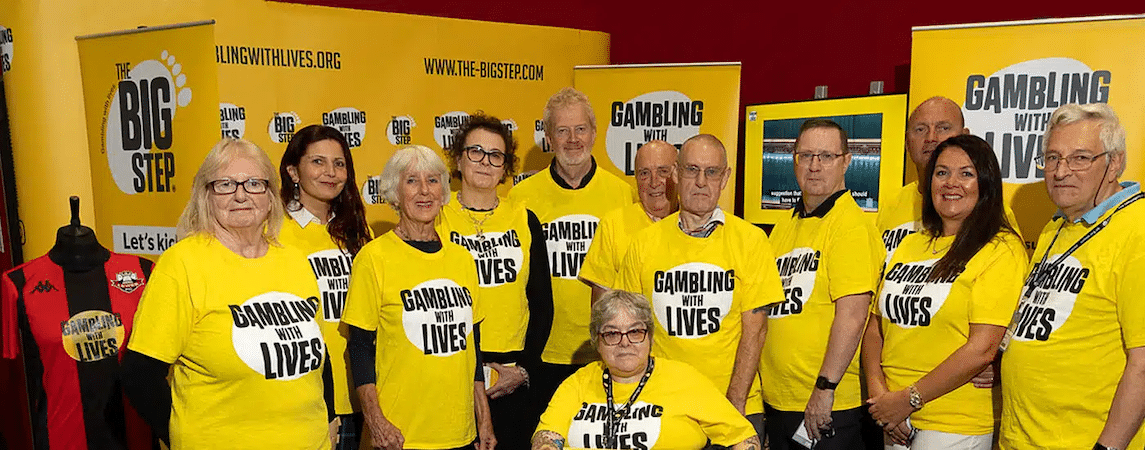Join Our Telegram channel to stay up to date on breaking news coverage
A man from Rotherham, United Kingdom, now 33 years of age, who first experienced gambling at the age of eight, is advocating for stricter rules on gambling advertisements. His initial encounter with gambling occurred during a family holiday at a seaside amusement arcade where he played fruit machines and penny slots, as reported by the BBC. The man warns of the dangers, especially with the looming potential cost of living crisis that could exacerbate issues for gamblers at the start of the year.
From Casual Play to Serious Addiction
What began as harmless fun in arcades gradually turned into a severe addiction for the man over two decades. As he grew older, before he was legally able to gamble, he would ask family members to place bets for him. Upon turning 18, he started using fixed-odds betting terminals and his gambling escalated to placing large bets, leading to significant personal and financial consequences, including overdose and homelessness. By 2018, he had managed to overcome his addiction and now works as a lorry driver, feeling content after years of what he described as “absolute chaos.”
The Allure of the Arcade
The former gambler recalled being instantly drawn to the arcade’s bright lights, the sounds of the machines, and the coins dropping. He described the environment as warm and safe, a stark contrast to the reality of his later struggles. Throughout his years of gambling, he estimates a loss of over £100,000 (approximately $124,600), and he still owes around £30,000 ($37,000). Currently, his financial history prevents him from securing a mortgage or even a mobile phone contract.
Decision to Change
The turning point came six years ago when he faced three drastic options: imprisonment, suicide, or quitting gambling. Exhausted and desperate for change, he chose to stop gambling. This decision was also influenced by the toll his addiction took on his wife, who suffered a mental breakdown due to his gambling habits. He sought help from the National Gambling Helpline, which he found supportive and non-judgmental. He describes his recovery as gradual, sometimes progressing minute by minute, but he now finds himself in a much better place.
Advocating for Parental Education and Regulation
The charity Gambling With Lives highlights the grave statistics surrounding gambling in the UK, noting approximately 500 suicides annually linked to gambling issues and about 80,000 children who are at risk or already addicted. As a father to a three-year-old daughter, the man doesn’t blame his parents for his early exposure to gambling but acknowledges that it was normalized around him. He advocates for better parental education on the dangers of gambling and stricter regulations on advertising.
His experiences have motivated him to push for these changes, and he hopes to use his life story as a cautionary tale for future generations. He also aspires to produce a documentary to further highlight the perils of gambling addiction. This push for change comes amidst recent calls from Bristol University for regulatory adjustments concerning social media gambling advertisements in the UK, underscoring a growing recognition of the issue.
Founded by bereaved families, we understand the trauma when a loved one is lost to gambling suicide.
We run a bespoke support service, free of charge, which includes therapeutic support, help with investigations & much more.
Find out more 👇https://t.co/RvuyHtPmEB
— Gambling with Lives (@GambleWithLives) April 14, 2024
Gambling Safety and Problems in Other Countries Around the World
We have recently reported on the concern about gambling addiction in the United States.
The increased accessibility of various betting options in the U.S. has inadvertently led to a surge in gambling addiction there. Recent data suggest a significant uptick in the number of people reaching out to problem gambling hotlines. For instance, after the introduction of sports betting in Florida in December, there was a notable increase in the number of inquiries received by the state’s Council on Problem Gambling via calls, texts, and emails.
This phenomenon extends beyond the borders of Florida, into other states. According to NBC News, many states across the country are observing similar increases in calls related to gambling problems. The concern is even greater because the expansion of betting options seems to be drawing in younger demographics. More young adults, particularly those in their 20s and 30s, are now seeking assistance for gambling-related issues.
The situation is equally alarming in other states. For example, the Problem Gambling Network of Ohio reported a 55% increase in calls in 2023, aligning with the state’s first full year of legalized betting. Pennsylvania has witnessed a comparable escalation, with calls to the state’s Council on Problem Gambling more than doubling from 2020 to 2023.
Keith Whyte, the executive director of the National Council on Problem Gambling (NCPG), has identified the proliferation of online sports betting as a key contributor to the increasing challenges of gambling addiction. This trend has been particularly notable since the 2018 US Supreme Court decision that overturned PASPA, thus allowing for broader legalization of betting. Whyte has advocated for the implementation of more robust measures within sports betting apps, including better self-exclusion features, as well as limits on time spent and money wagered. Additionally, he stresses the importance of ensuring that those affected have easy access to national helpline services for problem gambling.
Meanwhile, in Thailand, similar concerns are leading to the beginning of a battle with the purpose to ban online gambling. However, some say their concern is not motivated by fear of addition, but rather, by a desire to collect tax revenues, as they are simultaneously consider legalizing real casinos.
Related News
- Is the Increased Legalization of Betting Bringing a Wave of Addiction in the US?
- Thailand Goes Against Illegal Online Gambling
- Best Crypto Presales to Invest in Now for 10x Gains in 2024
- Wall Street Memes Casino Referral Code & Bonus Codes [2024]
Join Our Telegram channel to stay up to date on breaking news coverage


